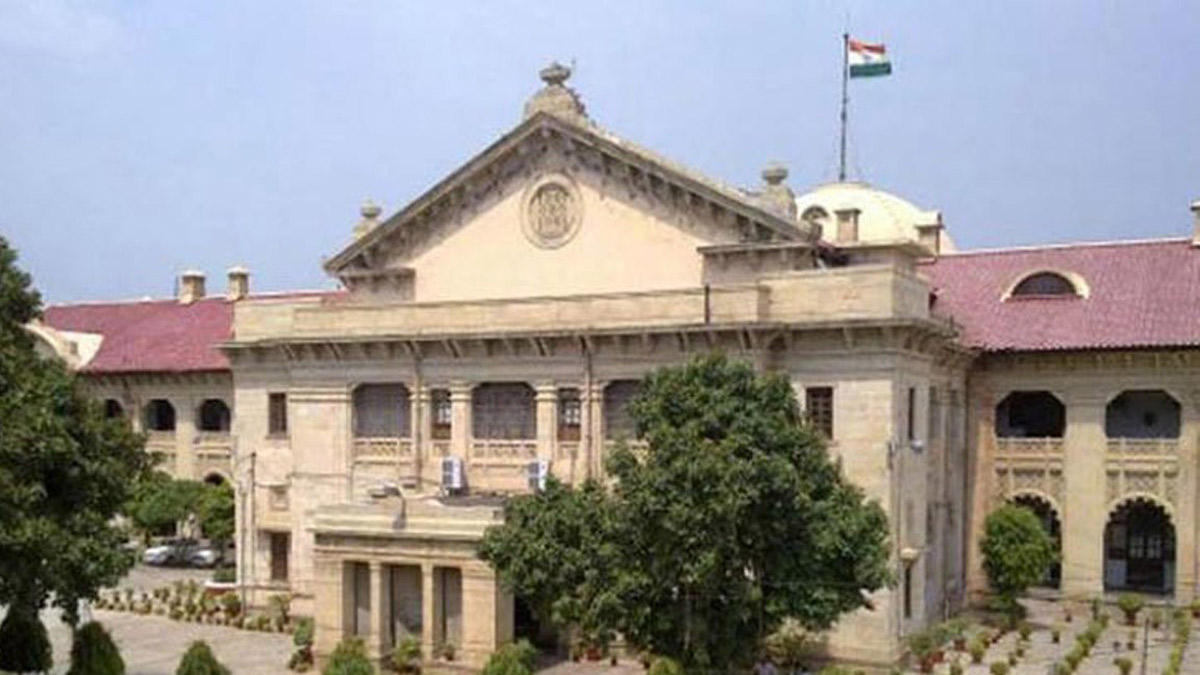Allahabad High Court removes bar on anticipatory bail in death and life imprisonment cases
 Allahabad High Court
Allahabad High Court
The Allahabad High Court has held that the introduction of the Bharatiya Nagarik Suraksha Sanhita (BNSS) in 2023 has effectively removed the longstanding prohibition on granting anticipatory bail in cases punishable by death or life imprisonment.
A single judge bench of the court made this landmark observation on July 3.
The BNSS came into force on July 1, 2024, replacing the previous Criminal Procedure Code (CrPC). Under the old regime, Section 438(6) of the CrPC, as amended by the Uttar Pradesh Amendment Act of 2019, explicitly barred courts from granting anticipatory bail in cases involving offenses punishable by death or life imprisonment.
However, the new BNSS contains no such restriction. Section 482 of the BNSS, which now governs anticipatory bail proceedings, deliberately omits any bar on granting such relief in serious criminal cases. The court interpreted this omission as Parliament’s intentional decision to remove the restrictions that had been imposed by the state amendment.
This legal principle was established through the case of Abdul Hameed, who found himself caught between two different legal regimes. Hameed was summoned to face trial in a 2011 murder case but was never formally charge-sheeted during the investigation.
In February 2023, while the CrPC was still in effect, a coordinate bench of the Allahabad High Court dismissed Hameed’s first anticipatory bail application. The dismissal was based solely on the statutory bar contained in Section 438(6) of the CrPC, which prohibited such relief in cases involving potential death or life imprisonment sentences.
Following the implementation of the BNSS in July 2024, Hameed filed a fresh application under Section 482 of the new code. When the sessions court dismissed this application in March 2025, he approached the High Court once again. This time, however, he was operating under an entirely different legal framework.
The case presented a conflict between old and new legal regimes. Hameed’s counsel argued that the statutory bar under Section 438(6) of the CrPC no longer existed under the BNSS, and that the application should be considered under the new, more liberal provisions of the current law.
The state government contended that Hameed was attempting to circumvent the established legal bar by relying on the newly enacted BNSS. They argued that since the alleged offense occurred in 2011, the chargesheet was filed under the CrPC regime, and cognisance was taken well before the BNSS came into effect, the new law could not retrospectively nullify the restrictions that applied in Uttar Pradesh.
In his reading, Justice Chandra Dhari Singh focused on the deliberate nature of the legislative change. The court emphasised that the omission of the anticipatory bail bar in Section 482 of the BNSS was intentional, demonstrating Parliament’s decision not to continue the restrictions introduced by the UP Amendment Act of 2019.
The judgment highlighted that “the absence of such a bar in the new Act assumes greater significance when viewed against the background of the specific inclusion of this bar in the state amendment to the CrPC”.
The court recognised that the enactment of the BNSS created “materially changed circumstances, both in law and fact”, which justified fresh consideration of anticipatory bail applications on their merits. The removal of the statutory bar represented what the court termed “a fundamental change in the legal framework, which destroys the very ground on which the first application was dismissed”.
Importantly, the court noted that Hameed’s first application had been dismissed not on its merits but purely on grounds of maintainability due to the statutory bar. With that bar removed, the legal landscape had changed sufficiently to make the current application maintainable.
The court clarified that applications filed after July 1, 2024, fall within the ambit of the BNSS, and applicants are entitled to benefit from its more liberal provisions. This principle was supported by citing a previous High Court order from 2024, establishing a consistent judicial approach to the transition between the two legal regimes.
This ruling has consequences for criminal law practice in Uttar Pradesh and potentially across India. It removes a significant barrier that had prevented individuals accused of serious crimes from seeking anticipatory bail, potentially affecting hundreds of cases involving charges punishable by death or life imprisonment.
India